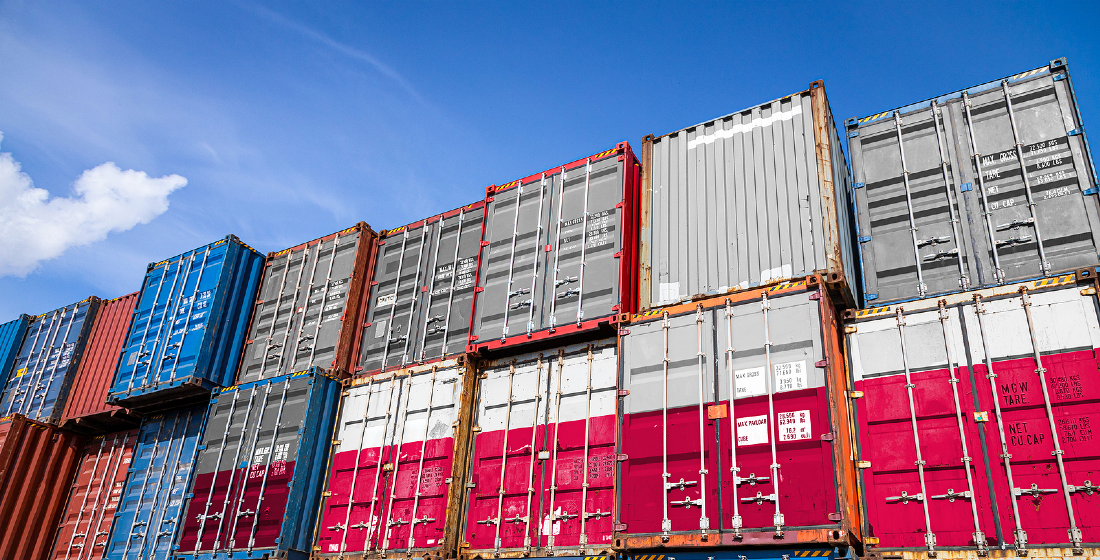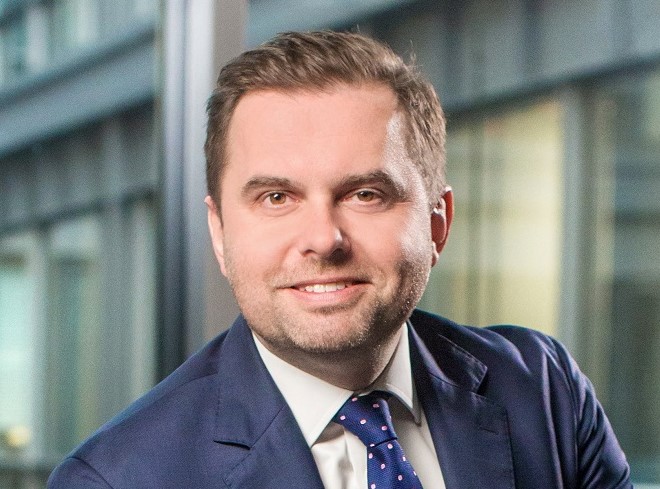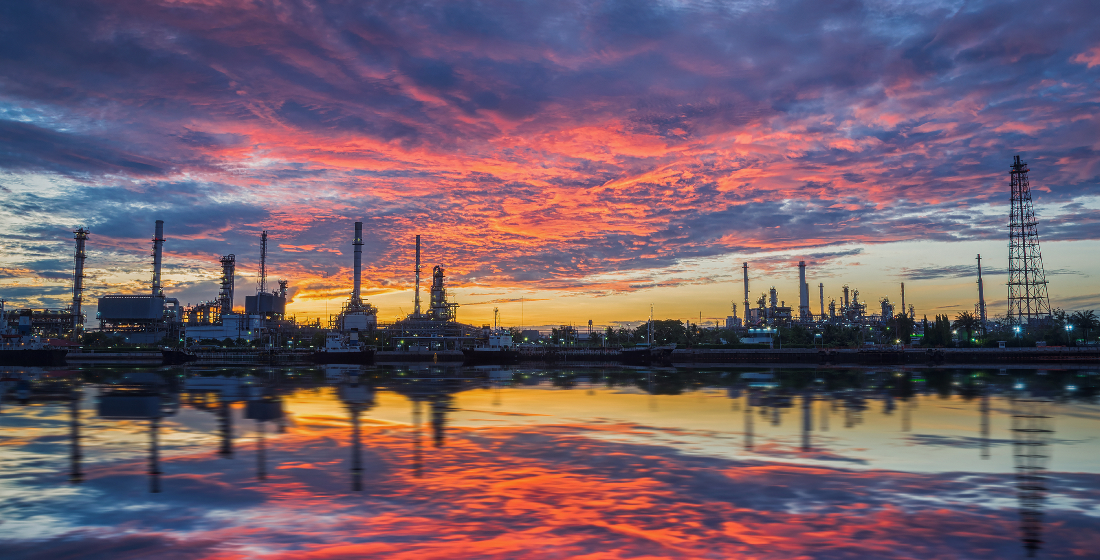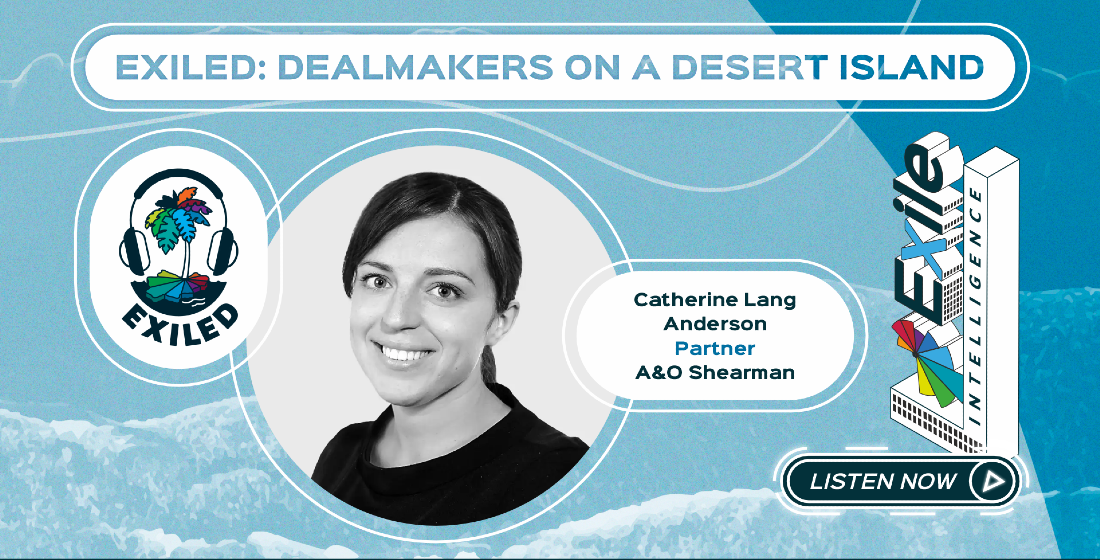Keynote: Adjusting to the new trade dynamics with KUKE’s Wladyczak
Janusz Wladyczak, CEO of KUKE, Poland’s export credit agency, discusses KUKE’s role in helping exporters pivot to new markets amid the conflict on its borders, its hopes for the energy transition and ambitious plans for supporting business to Africa. Matchmaking is the watchword.

TXF: These have been a challenging 15 months with Poland on the edge of the Russia/Ukraine conflict. How has that impacted KUKE’s role and in particular, investment in Poland as a logistics hub?
 Janusz Wladyczak (JW): The proximity of the conflict is a challenge. We share a border not only with Ukraine, but unfortunately also with Belarus and Russia, and Belarus is involved in the conflict. So it impacted risks from different angles as well as risk appetite.
Janusz Wladyczak (JW): The proximity of the conflict is a challenge. We share a border not only with Ukraine, but unfortunately also with Belarus and Russia, and Belarus is involved in the conflict. So it impacted risks from different angles as well as risk appetite.
First, the majority of our portfolio, especially in terms of the medium and long term business, was in the CIS market. When the war started, potential deals evaporated. That whole pipeline was wiped out.
Fortunately enough for us, more than two years ago we had already started to slightly differentiate our pipeline more towards the Middle East and Africa. And some market trends have helped us to find this equilibrium.
Obviously at the same time, we've seen our own companies having a lot of trouble, especially in terms of day to day trading, as Belarus, Russia and Ukraine were pretty big for them. If you sum those three markets up, they were the rough equivalent to the size of Polish exports to Italy, which is ranked number six in terms of Poland’s top export countries. Suddenly they had to find different geographical locations to sell their goods. KUKE has helped them in a peculiar way – by decreasing the prices of trade receivables insurance in order to attract them to other markets. We have encouraged them to look into other markets and make the move.
TXF: How successful has that been?
JW: In fact, after more than one year, it started to work. We had 80% growth of covered exports last year while Polish exports rose 20% year on year in total. At the same time, we've been one of a few European Union ECAs that have been insuring trade receivables to Ukraine. That has helped a lot in terms of keeping the turnover of our companies going.
When we sum up 2022, we can already see that this turnover with Ukraine has been exactly the same as it was before the war.
We have also created a dedicated support system in order to efficiently participate in the reconstruction of Ukraine’s economy. It consists not only of trade and LCs insurance but also reinsurance of cargo and transportation means for private insurance companies. We are already screening many projects, including those where we share the risk with other ECAs, for the private and public sectors. We do see interest in greenfield and brownfield projects of Polish companies as well as M&A transactions.
Moreover, we encourage international investors interested in building their presence in Ukraine to open their premises or branches in Poland, which means they gain more access to the Polish market, the EU market, and to Ukraine at the same time.
TXF: How has KUKE has been investing in decarbonisation – and how will this help in the energy transition in Poland and globally?
JW: We’re heavily exposed to coal. Our energy mix is around 72% based on coal, the rest is renewables and some gas. We want to change that but it cannot be done in a couple of minutes. As we do have a gap between us and the Western world, we need a huge amount of capital to be injected into the system. According to the government we need around $250 billion dollars for an energy transition more towards renewables.
The government has some strategies for how to cope with coal, but it will take them some time. Here at KUKE, we are trying to be as inventive as possible. We are working on a domestic support system, not as an ECA, and we are aiming to change the law in order to be able to support those investments in Poland and be able to guarantee financing decarbonisation and the green energy transition up to 80%.
Fingers crossed that this law is going to be passed in July and announced in the Autumn. Poland is a booming market in that sense because PV installations are growing by 100% a year, electric cars are happening and we have a lot of offshore [wind] going on. All of this needs a lot of cash.
TXF: On the transition to renewables, how is your product suite evolving and how will changes to the OECD Arrangement help?
JW: I'm happy that the OECD Arrangement changes happened because we have been waiting for that for ages. It’s going to give us more flexibility and it's extremely important in order to compete with the rest of the world. But at the same time, our scope of solutions and product has changed over the years.
As I mentioned, offshore is one of those investments which are booming in Poland. All the major players are already there and are putting up windmills everywhere possible. As a country which is in transition we need a lot of infrastructure longer term. So it's great that we will be able to offer that.
But at the same time, our product range has changed. Like many ECAs, we have put a lot of effort into the domestic market. Our small and medium-sized companies are on a slightly different phase of development than Western European ones, which means that they need a lot of capital. We are helping them to start to export and we are helping established exporters to gain the capital for investments in order to compete on the international markets.
TXF: How will KUKE work with other ECAs and banks to achieve these goals?
JW: In this regard we collaborate mainly with Polish banks. There are almost 20 leading local financial institutions, also commercial insurers wanting to diversify their investment portfolio, that offer our instruments covering investment and working capital needs of their customers.
Increased volatility, overwhelming uncertainty, rising costs, and higher interest rates discourage businesses and banks from investing. KUKE’s guarantees introduced in 2021 give comfort to both sides. Last year their volume exceeded €1 billion, helping exporters to increase their production capacity. We see more and more institutions joining our scheme and expect the volume to rise two or three-fold this year.
TXF: What areas of your future deal pipeline are particularly exciting you at the moment?
JW: Africa is the key word. The US and the EU woke up and accelerated economic diplomacy on the continent to compete more efficiently with China. India, Japan, the Gulf States are also very active. I am happy to announce that also KUKE’s ’African offensive’ – toutes proportions gardées [proportionately] – has finally gained its footing.
This has been our goal for a couple of years, though it became one of the priorities after Russia’s invasion of Ukraine which eliminated big chunk of export markets for Polish enterprises. We are ready to participate in various projects in African countries and are being very proactive and taking advatage of our relations with banks, ECAs and EPCs. We have over 500 records of Polish contractors and suppliers that are willing to join projects abroad.
We see our role as being a deal matchmaker. At KUKE we have quite a lot of financial potential to guarantee transactions and we are underweight Africa so other ECAs are inviting us to take on some of the exposure.
We are currently working on around 20 transactions in Africa, with five of them expected to be finalised by the end of this year.
However, recently we are also much more open to countries in East and South-East Asia which are in relatively good shape in comparison to other regions having low inflation and continuing GDP growth. Indonesia, Vietnam, Bangladesh and of course India are very promising markets especially taking into account current trends in near- and friend-shoring.
KUKE’s COO, Katarzyna Kowalska, will be speaking at TXF’s Africa 2023 event in Cape Town on October 24-25.





